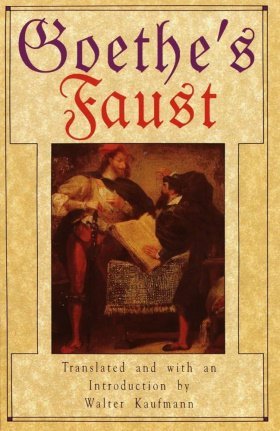For that themselves to life are arisen.
From lowly dwellings’ murky prison,
From labor and business’ fetters tight,
From the press of gables and roofs that meet
Over the squeezing narrow street,
From the churches’ solemn night
Have they all been brought to the light.
Lo! how nimbly the multitude
Through the fields and the gardens hurry,
How, in its breadth and length, the flood
Wafts onward many a gleesome wherry,
And this last skiff moves from the brink
So laden that it seems to sink.
Ev’n from the far hills’ winding way
I’ the sunshine glitter their garments gay.
I hear the hamlet’s noisy mirth;
Here is the people’s heaven on earth,
And great and small rejoice to-day.
Here may I be a man, here dare
The joys of men with men to share.
Wagner.
With you, Herr Doctor, one is proud to walk,
Sharing your fame, improving by your talk;
But, for myself, I shun the multitude,
Being a foe to everything that’s rude.
I may not brook their senseless howling,
Their fiddling, screaming, ninepin bowling;
Like men possessed, they rave along,
And call it joy, and call it song.
Scene III.
Peasants. [beneath a lime-tree]
The shepherd for the dance was dressed,
With ribbon, wreath, and spotted vest,
Right sprucely he did show.
And round and round the linden-tree
All danced as mad as mad could be.
Juchhe, juchhe!
Juchheisa, heisa, he!
So went the fiddle bow.
Then with a jerk he wheeled him by,

























